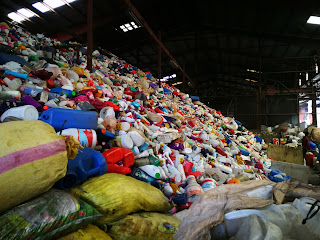With the continuing battle against plastic pollution in the country, Philippine business leaders highlight their initiatives and show support for the Extended Producer Responsibility.
Extended Producer Responsibility or EPR is an environmental policy approach introduced in the 1990s for accelerating the transition to sustainable waste management and a circular economy and more and more businesses worldwide are on board.
EPR relies on two factors - improvement of product design and recyclability and improvement of waste management systems - and businesses here in the Philippines have stepped up to the challenge, taking sustainability seriously, by working on both upstream and downstream measures to address the plastic crisis.
Coca-Cola Philippines is continuously moving forward with its “World Without Waste” campaign, a global effort of the Coca-Cola Company that aims to successfully recycle used bottles to new ones. In the Philippines, Coca-Cola’s one-billion-peso recycling facility is already nearing completion with a target to be open this year.



















.JPG)
.jpg)


.png)
.jpg)
